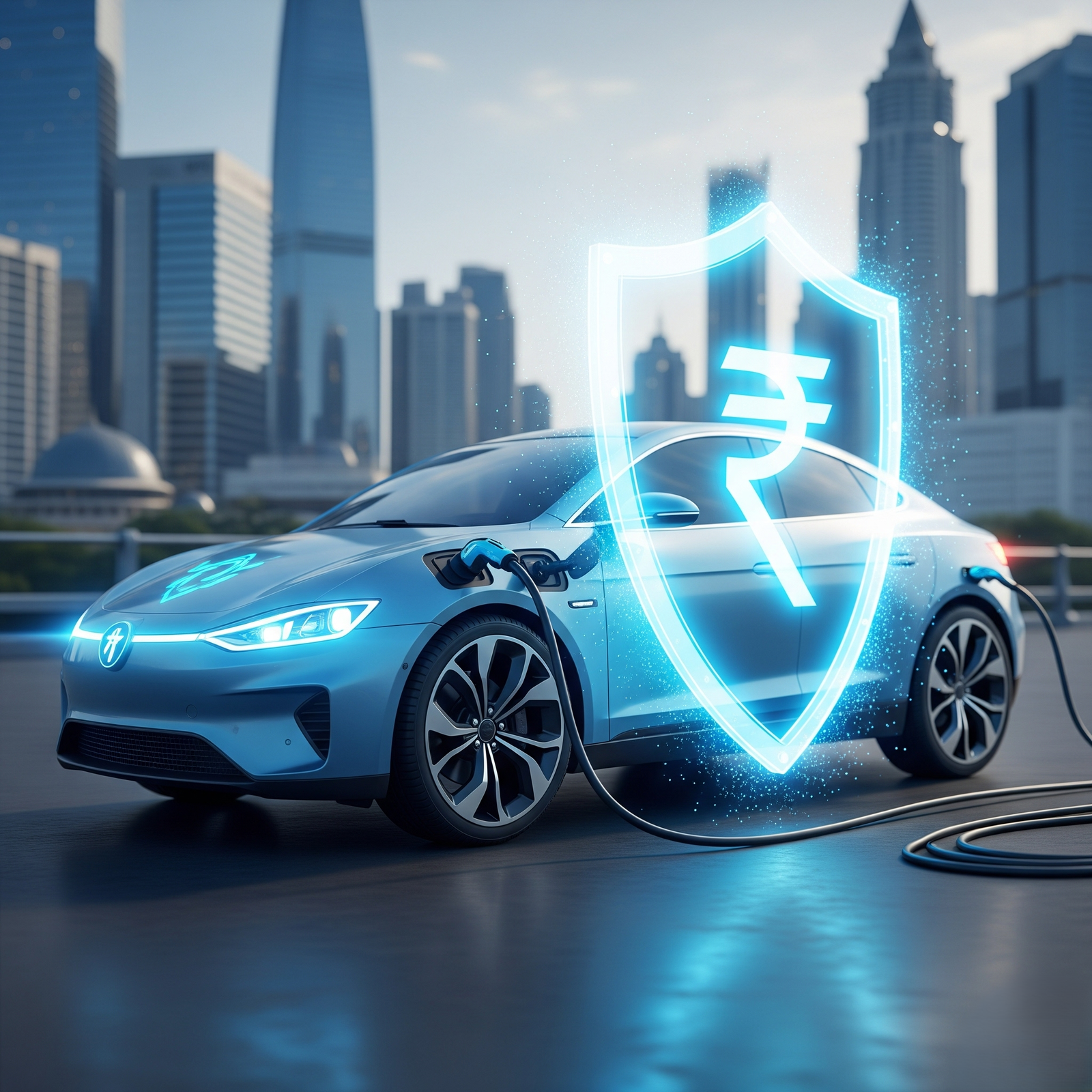India is experiencing an unprecedented surge in Electric Vehicle (EV) adoption, driven by environmental consciousness, government incentives, and technological advancements. As more Indian drivers embrace the silent revolution, a crucial question arises: how does insurance adapt to these new-age vehicles? Electric Vehicle (EV) Insurance is not just a modified version of traditional motor insurance; it’s a specialized shield designed to address the unique characteristics and risks associated with EVs, ensuring peace of mind for their owners.
Why EV Insurance is Different (and Essential)
While the fundamental principles of motor insurance remain – covering third-party liabilities and own-damage – EVs introduce a new set of considerations that necessitate tailored insurance solutions:
- High Cost of Key Components: The heart of an EV is its battery pack, often accounting for a significant portion (30-40%) of the vehicle’s total cost. Electric motors, controllers, and onboard chargers are also expensive and require specialized repairs. Standard policies might not adequately cover these high-value components.
- Unique Repair Protocols: Repairing EVs often demands specialized tools, diagnostics, and trained technicians, leading to potentially higher repair costs compared to Internal Combustion Engine (ICE) vehicles. The service ecosystem for EVs in India is still developing.
- Specific Risks: EVs have unique vulnerabilities. These include:
- Battery Damage: Susceptible to damage from power surges, overcharging, accidents, or water ingress (hydrostatic lock) during floods.
- Charging Equipment: Home charging units and cables can be vulnerable to theft, physical damage, or electrical faults.
- Fire Risks: While statistically rare, EV battery fires can be intense and require specialized extinguishing methods.
- Evolving Technology: The EV landscape is rapidly innovating. Insurance policies need to keep pace with new battery technologies, charging standards, and vehicle features.
Core Coverages in EV Insurance
Just like traditional motor insurance, EV insurance in India typically offers:
- Third-Party Liability Cover: This is legally mandatory and covers any financial liability arising from accidental death, bodily injury, or property damage caused to a third party by your EV.
- Comprehensive EV Insurance: This is highly recommended for EV owners. It includes third-party liability coverage plus protection for your own vehicle against:
- Accidents
- Fire
- Theft
- Natural calamities (floods, earthquakes, cyclones, etc.)
- Man-made disasters (riots, strikes, malicious acts, etc.)
- Personal Accident (PA) Cover for the owner-driver.
Essential Add-ons for EV Owners
To truly safeguard your investment, consider these EV-specific add-ons that go beyond the basic comprehensive policy:
- Battery Protection Cover: This is arguably the most crucial add-on. It specifically covers the repair or replacement costs of your EV’s high-cost battery pack and Battery Management System (BMS) against damages from water ingress, power surges, or accidents, which are often not fully covered under a standard policy.
- EV Charger Cover: Protects your home charging unit, cables, and other related equipment from theft, damage, or electrical faults.
- Motor Protection Cover: Similar to engine protection for ICE vehicles, this covers damages to the EV’s electric motor due to water ingress or lubricant leakage.
- Roadside Assistance (EV Specific): Crucial for EVs, this can include services like towing to the nearest charging station, emergency mobile charging assistance, flat tire repair, and breakdown support.
- Zero Depreciation Cover: Given the high cost of EV parts, this add-on ensures that you receive the full cost of repairs or replacements without any depreciation deduction during claims, maximizing your claim payout in Indian Rupees.
- Return to Invoice Cover: In case of total loss or theft, this add-on ensures you receive the on-road price of your EV, including registration charges and road tax, not just the depreciated Insured Declared Value (IDV).
Factors Influencing EV Insurance Premiums
While government incentives can sometimes reduce the overall cost of EV ownership, EV insurance premiums can be influenced by:
- Insured Declared Value (IDV): EVs often have a higher IDV due to their advanced technology and battery cost, which can lead to higher premiums.
- Cost of Parts & Repairs: Specialized EV components and limited skilled technicians can increase potential repair costs.
- KW Rating/Power Output: IRDAI guidelines often link premiums to the EV’s power output (kW rating).
- Driving History & Location: Standard factors like your driving record, age, and geographical location still play a role.
- Installed Security Devices: Anti-theft devices can fetch you discounts.
- Voluntary Deductibles: Opting for a higher voluntary deductible can lower your premium.
Choosing the Right EV Insurance Policy
- Prioritize Comprehensive Coverage with EV-Specific Add-ons: Don’t compromise on protection for your high-value EV.
- Compare Quotes from Multiple Insurers: The EV insurance market is growing, with various players offering specialized policies. Use online platforms to compare.
- Check Claim Settlement Ratio: A high claim settlement ratio indicates a reliable insurer.
- Understand Exclusions: Be aware of what your policy explicitly does not cover to avoid surprises during claims.
- Inquire about Cashless Garages for EVs: Ensure the insurer has a network of garages equipped to handle EV repairs.
As India moves towards a greener automotive future, embracing Electric Vehicle Insurance is not just a legal compliance but a strategic decision. It’s about protecting your investment, minimizing financial risks, and driving confidently into the electric era, knowing your valuable EV is adequately safeguarded in Indian Rupees.

